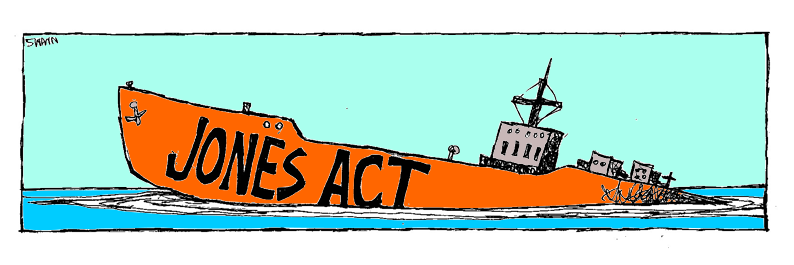The Jones Act Law, formally known as the Merchant Marine Act of 1920, is a vital piece of legislation that has had a significant impact on the maritime industry in the United States. Designed to protect the rights of maritime workers and promote economic growth, the Jones Act has shaped the way goods are transported between U.S. ports. In this article, we will delve into the key aspects of the Jones Act, its historical background, its impact on various stakeholders, and the controversies surrounding it.
The Historical Context Of The Jones Act
The Jones Act was enacted in response to the aftermath of World War I and aimed to revive the U.S. maritime industry, which had suffered significant losses during the war. It sought to establish a regulatory framework that would ensure a strong merchant marine fleet and provide a skilled workforce for national security and economic purposes.
The Purpose And Provisions Of The Jones Act
The primary purpose of the Jones Act is to protect maritime workers by requiring that all goods transported between U.S. ports be carried on vessels that are built in the United States, owned by U.S. citizens, and operated by U.S. crews. This provision, commonly known as cabotage, promotes the development of a robust domestic maritime industry.
The Impact On Maritime Workers
- Ensuring the Safety and Well-being of Seafarers
The Jones Act establishes safeguards for maritime workers, ensuring they have access to medical care, maintenance, and cure in case of injuries sustained while on the job. It holds vessel owners liable for any negligence or unseaworthiness, providing a legal recourse for injured seafarers.
- Employment Opportunities for American Mariners
By requiring vessels engaged in domestic trade to be crewed by U.S. citizens, the Jones Act creates employment opportunities for American mariners. It helps maintain a skilled workforce, supporting the growth of the maritime industry and ensuring a pool of qualified seafarers for national security needs.
The Impact On The U.S. Maritime Industry
- Encouraging Domestic Shipbuilding and Maintenance
The Jones Act has played a crucial role in promoting domestic shipbuilding and maintenance capabilities. By mandating that vessels be constructed in the United States, the law stimulates investment in shipyards, supporting jobs and fostering technological advancements in the industry.
- Fostering a Competitive Maritime Sector
The Jones Act contributes to a competitive maritime sector by leveling the playing field for U.S. shipowners and operators. It ensures fair competition and prevents foreign carriers from undercutting American businesses by exploiting lower labor and safety standards.
The Controversies And Criticisms Surrounding The Jones Act
Despite its intended benefits, the Jones Act has also faced criticism and controversies over the years. Let’s explore some of the key concerns raised by its opponents:
- Cost and Economic Implications
Detractors argue that the Jones Act contributes to higher transportation costs, as domestic shipping is often more expensive than utilizing foreign carriers. Critics claim that this leads to inflated prices for goods transported between U.S. ports, ultimately impacting consumers and businesses.
- Exemptions and Waivers
Some argue that the Jones Act’s strict requirements limit flexibility in the maritime industry and hinder emergency response efforts. Critics suggest that exemptions or waivers should be granted during times of natural disasters or other emergencies to facilitate the efficient movement of goods and aid.
The Future Of The Jones Act
As with any legislation, the Jones Act continues to evolve and adapt to changing circumstances. Advocates believe that the law remains crucial for preserving national security, supporting domestic shipbuilding, and safeguarding the rights of maritime workers. However, ongoing debates and discussions surrounding the Act may lead to potential modifications or exemptions in the future.
Conclusion
The Jones Act has played a significant role in shaping the U.S. maritime industry, protecting the rights of maritime workers, and promoting economic growth. While it has faced criticisms, the Act continues to be a cornerstone of the domestic shipping sector, ensuring the safety of seafarers, fostering employment opportunities, and supporting the development of a competitive maritime fleet.






